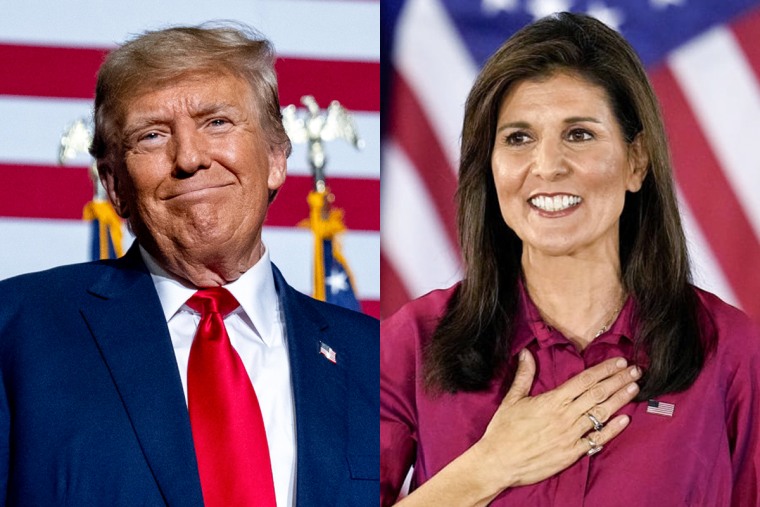Three high-quality New Hampshire polls have now been conducted after the Iowa caucuses — and they tell a consistent story about the battle in the state’s GOP presidential primary.
It’s not just that all three of them — two tracking polls via the Boston Globe/NBC-10/Suffolk, as well as another poll from St. Anselm College — have former President Donald Trump leading former U.N. Ambassador Nikki Haley by double digits, or that they all have Trump at 50% or higher.
It’s in the reason Trump has that lead: Across the three polls, Haley is winning independents by 10 to 20 points. Trump, meanwhile, is winning registered Republicans by some 40 points.
That spread has given Trump what he needs to maintain a lead, despite New Hampshire being more favorable operating terrain for Haley than Iowa. In New Hampshire, registered Republicans and independent (undeclared) voters are split almost 50-50 in the state’s likely electorate. That’s compared to a more heavily Republican split among Iowa caucusgoers — 82% Republican, 18% other, according to that contest’s entrance poll.
Notably, each of these polls was conducted after former New Jersey Gov. Chris Christie’s exit from the Republican presidential race, meaning Haley faced less competition for independents. Prior to his exit, Christie was getting a significant share of independent support in polls.
Take the latest tracking Boston Globe/NBC-10/Suffolk poll, which has Trump ahead of Haley by 17 points, 52% to 35%.
Among likely primary voters who are registered undeclared/independent — 44% of the poll’s electorate — Haley is ahead of Trump by 11 points, 49% to 38%.
But among likely primary voters who are registered Republicans — 55% of the electorate — Trump leads Haley by 37 points, 62% to 25%.
The previous wave of interviews from the same tracking poll showed a similar trend.
And the same trend exists in the St. Anselm poll, in which Trump leads Haley overall by 14 points, 52% to 38%.
Among undeclared voters — 47% of the survey’s likely voters — Haley is ahead by 15 points, 52% to 37%.
But among registered Republicans — 53% of the voters — Trump is up by 40 points, 65% to 25%.
Now, these are just a couple of polls. New Hampshire polling has proved difficult and volatile, especially coming after the Iowa results. Things can shift quickly, and measuring the likely electorate isn’t easy.
Yet, the polls make clear that if Haley is going to upset Trump in New Hampshire, she has to start winning independent voters by a greater clip than Trump’s advantage with registered Republicans.
And right now, she’s not doing that.


